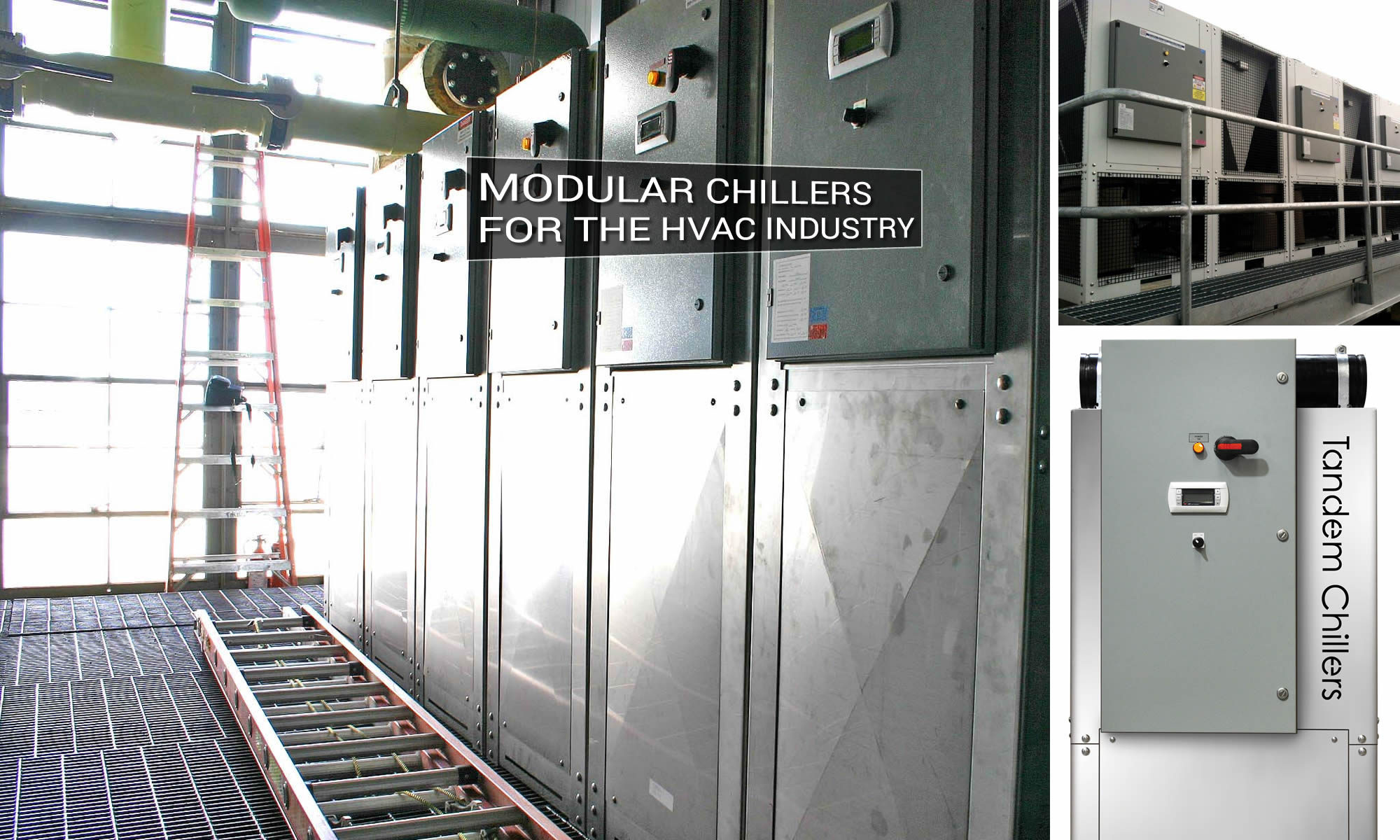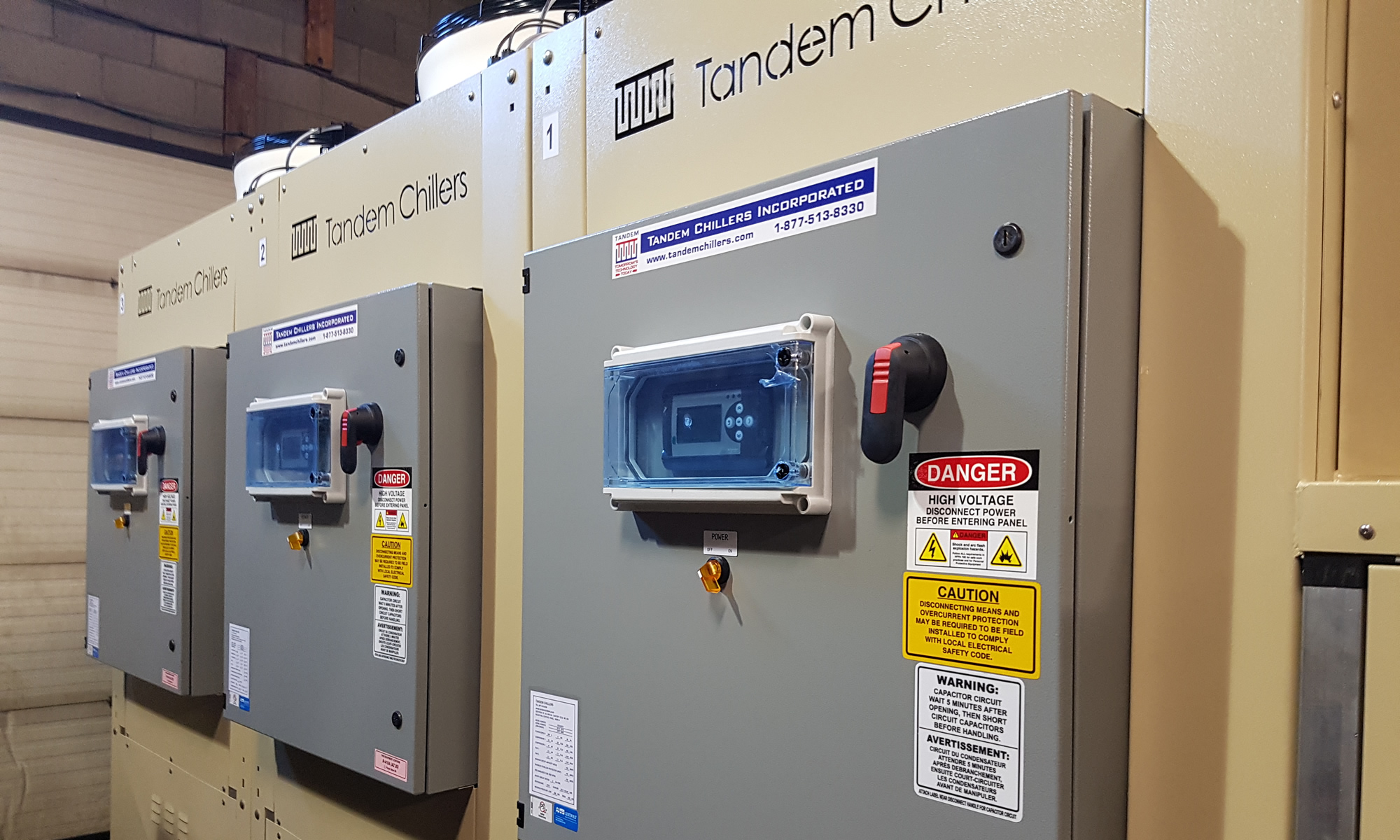July 2019 – The advantages of Modular HVAC Chillers shouldn’t be that surprising in the air conditioning industry. An expandable and totally reliable air conditioning system almost sounds to good to be true. Include the ability to control the cooling capacity and you really have something.
Modular HVAC Chillers are two or more smaller chiller units or modules that are linked together to provide a wide range of cooling capacity. Like traditional stand-alone chillers, each unit has the same basic four components: 1) a compressor, 2) a condenser, 3) an expansion device and finally, 4) a heat exchanger.
Each individual chiller in a modular design has its own dedicated power source and can operate independently on its own. This also means that it can be shut down while the other units continue to operate.
In an article at HPAC Magazine, it is hard to dispute the advantages that a modular air conditioning solution has over something more traditional.
Easy Installation: because they are smaller in size, modular systems are ideal for retrofitting an air conditioning system for a building where space is limited and hard to access.
Cooling Capacity Control: greater control over cooling capacity. Modular systems allow you to shut down a unit when cooling requirements are lower and to expand the system if more cooling is required.
No Downtime: because it is highly unlikely that all the units will malfunction at the same time, a modular system has built in redundancy. The system provides cooling even in the event of component failure, i.e., compressor failure.
Expandability: When faced with an increase in cooling demand due to building expansion, it is much easier to add another unit to the system than it is to bring another stand-alone chiller.


